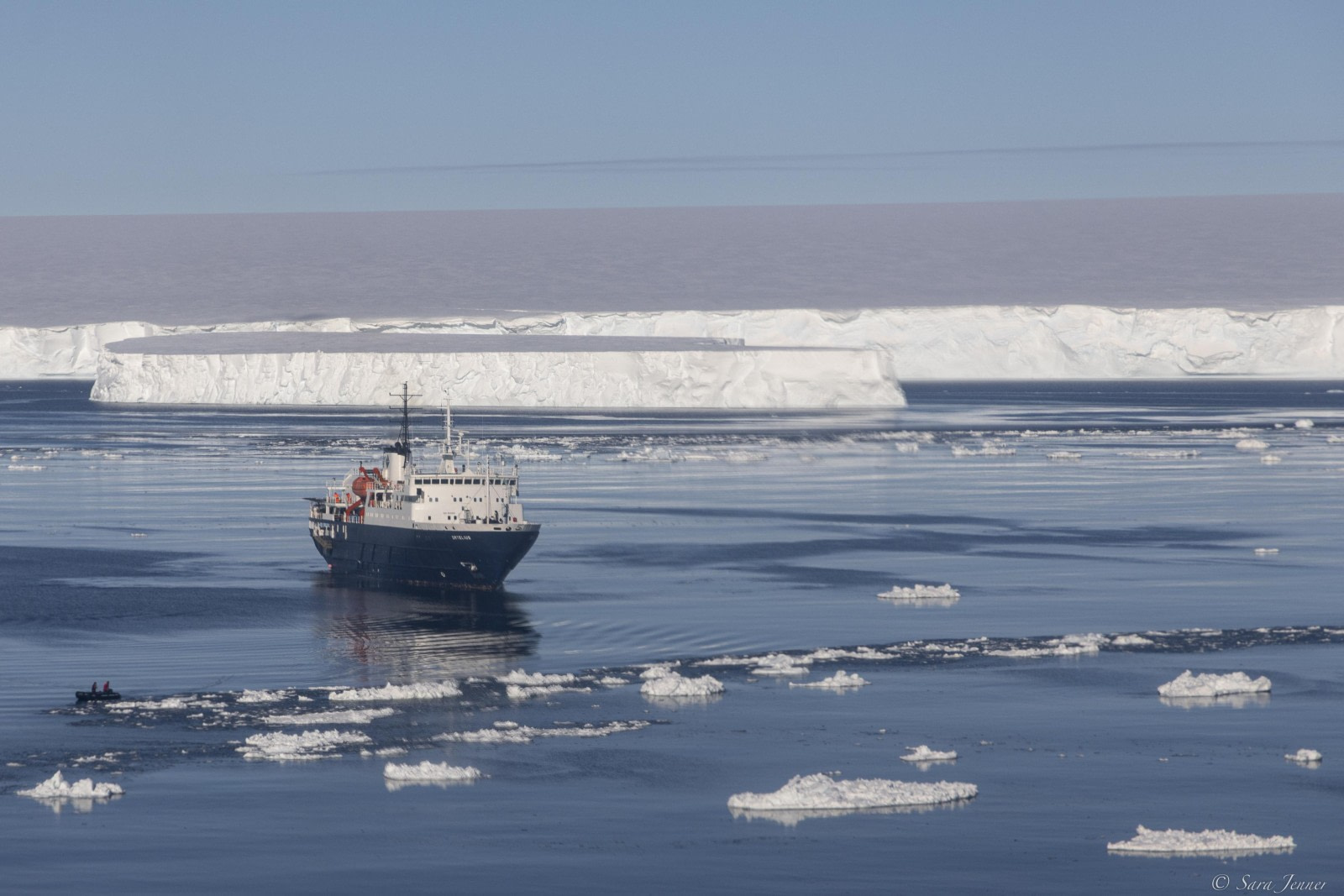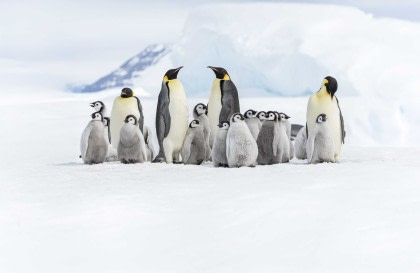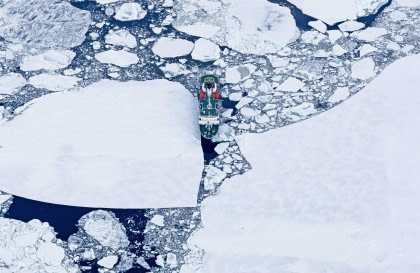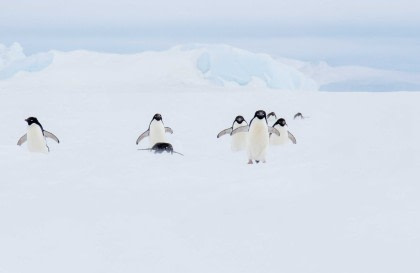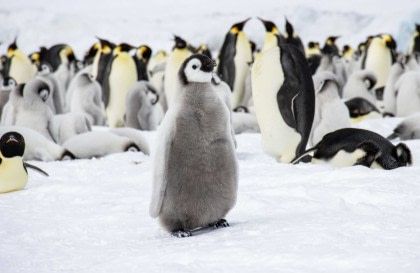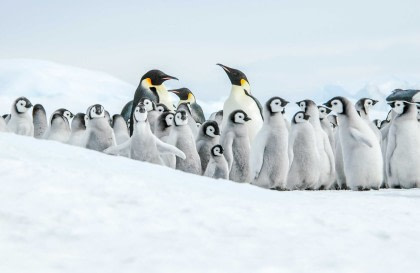Join Shackleton scholar & polar historian Stephen Scott-Fawcett FRGS on a truly epic expedition voyage into the mighty Weddell Sea, retracing the route of the Endurance, and uncovering the myths and realities of the men of the Imperial Trans-Antarctic Expedition (ITAE) and the man who led them, Sir Ernest Henry Shackleton.
Shackleton is synonymous with Antarctica and the ‘Heroic Age’ of Antarctic exploration. It is a name that conjures images of ice-choked seas and snow-flecked beards, and beards and evokes the Edwardian stiff upper lip stoicism associated with Britishness of the era. It is the name of a leader who held his crew together through one of the most remarkable survival stories of the 20th century and achieved success and failure in equal amounts multiple times in the wilds of Antarctica. But the real story of both Shackleton the man and the tale of the men of the Endurance is, according to Shackleton scholar Stephen Scott-Fawcett FRGS, much more nuanced.
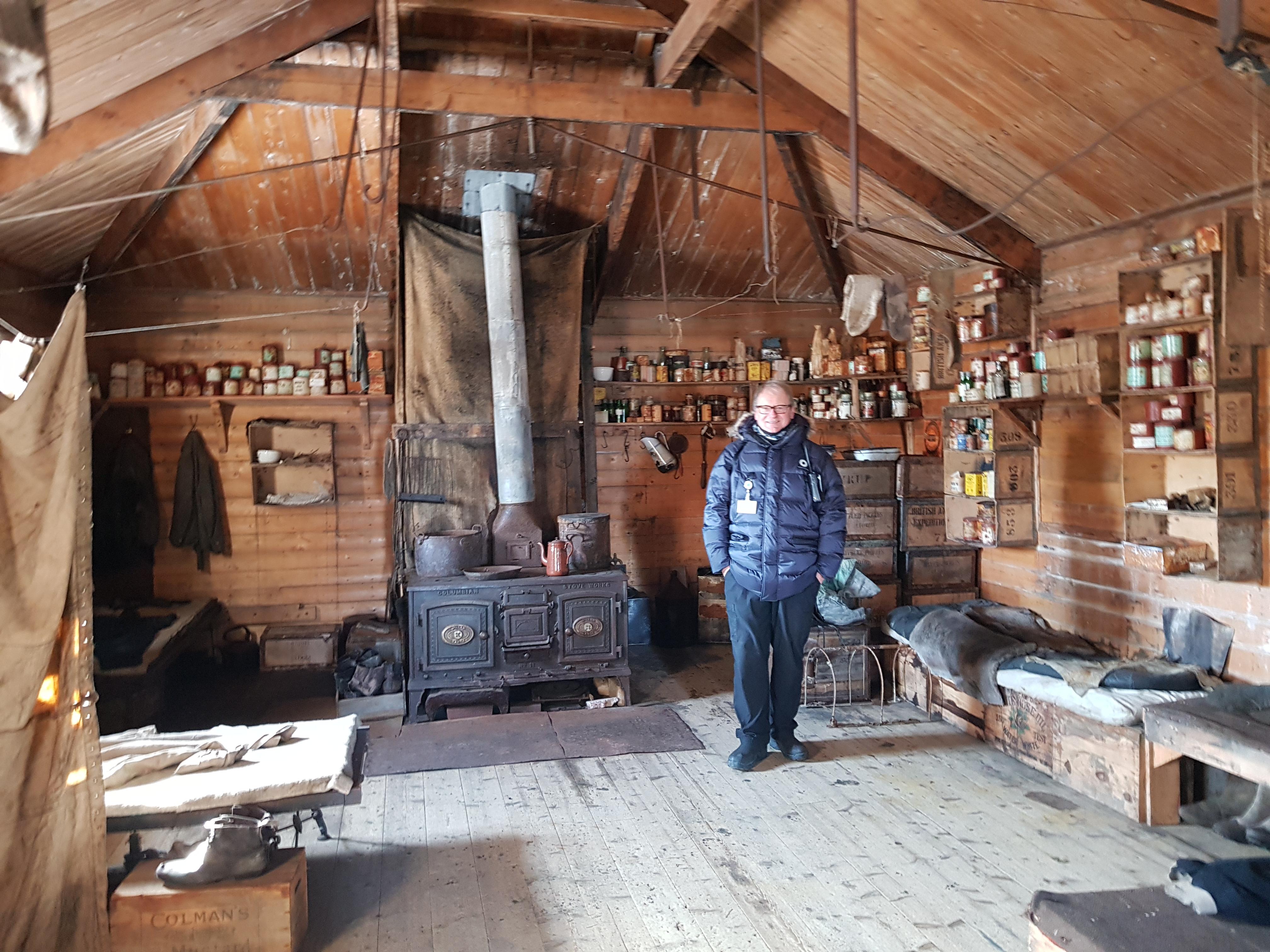
Photo: Stephen Scott-Fawcett
This Antarctic season, Stephen Scott-Fawcett FRGS will join our Remote Weddell Sea voyage, a unique, truly pioneering itinerary that, across 27 nights, retraces much of the route of the expedition ship, Endurance, and the ice and sea route of Shackleton and his men following her sinking in 1915. Stephen will be part of the onboard expedition staff, offering lectures/workshops and insights into Shackleton the man, his expedition, the Heroic Age, and the people who lived it.
Stephen has spent years studying Shackleton and his contemporaries - editing the James Caird Society Journal, running the Sir Ernest Henry Shackleton Appreciation Society (Facebook Private Group) online, and researching at University of Cambridge's Scott Polar Research Institute.
Leadership and Survival: The Real Genius of Shackleton
For many, what distinguishes Shackleton from most of his contemporaries is not just what he did, but how he led - a viewpoint also held by Stephen. "Shackleton's real genius wasn't in map-making or scientific discovery. It was in managing people, knowing when to push, when to pause, when to make them laugh. He was incredibly emotionally intelligent." On the Endurance expedition, where the crew spent months adrift on pack ice and later huddled under upturned boats on Elephant Island, Shackleton's ability to hold morale together was his greatest contribution.
"He understood people better than any other explorer of the time," Stephen continues. "And that's why the men followed him, even in the bleakest of circumstances." There were certainly other figures present on the Endurance expedition, known officially as the Imperial Trans-Antarctic Expedition, who contributed immensely to the enterprise through their ingenuity, expertise, or sheer strength of will.
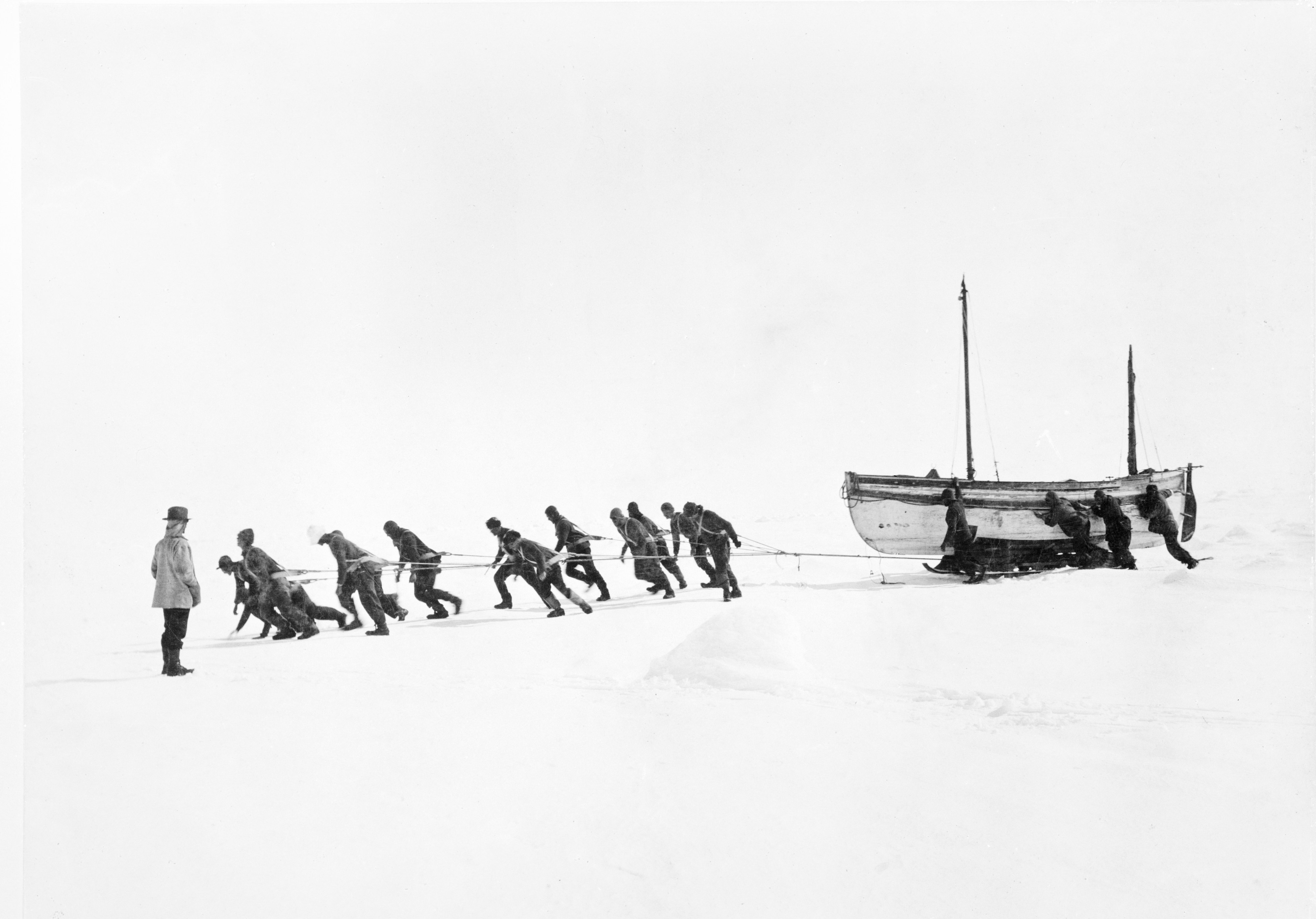
Photo: James Caird
Figures such as Frank Worsley, who navigated the James Caird across the treacherous Southern Ocean at the climax of their ordeal, or Harry 'Chippy' McNish, the ship's carpenter, who outfitted the James Caird for its journey and contributed countless times throughout the men's sojourn on the ice with his clever craftsmanship, should be celebrated too. Then there is the indefatigable Tom Crean, the hardy Irish polar veteran whose lack of formal education was more than compensated for in willpower, resolve, bravery, and loyalty. Polar veteran Frank Wild, was the most experienced and hardened of them all. He was Shackleton's right-hand man. Amongst many other things, he kept things together for the 22 men marooned on Elephant Island – no little feat!
Part of Shackleton's strength was his ability to corral and lead such a group of remarkable men with strong personalities and fierce ideas, avoiding mutiny on the ice and guiding them through an ordeal that would have broken and scattered an expedition led by lesser men.
Men of a Different Age & a Harsher Reality
"I think the Edwardian man was much tougher than you and me," Stephen says plainly."These days we live in centrally heated houses. We have good diets. We live well. Back in those days they were just more durable - more sanguine about the hardships."
The Heroic Age of Antarctic exploration perfectly captures the essence of Edwardian stoicism and the romanticism of doomed explorers, showing grit and a British sense of decorum in the face of adversity and even death. Indeed, the men of the Endurance were part of the final curtain call on this age of national excitement and pride, with the modern world rapidly advancing and the gaze of society drawn towards the chaos of the First World War and away from the edges of empire.
"They wouldn't even probably talk about the cold. They'd be talking about their loved ones, their books, the penguins. They wouldn't say, 'It's really cold, isn't it, Boss?' It just wasn't their way. They truly were magnificent men, most of them, but they were also products of a different kind of mentality."
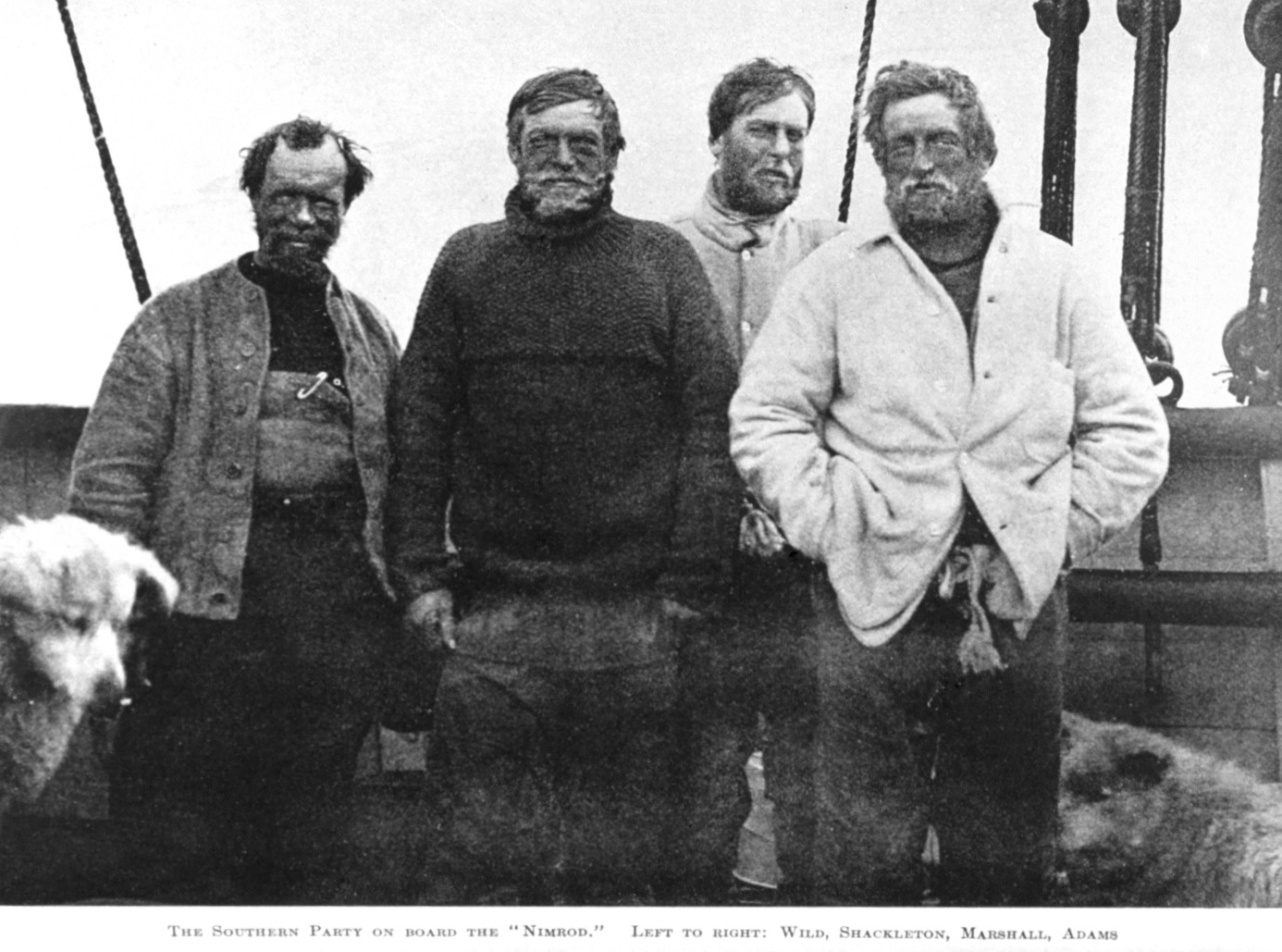
Photo: Shackleton and his team on board the Nimrod
The famous line uttered by Captain Lawrence Oates before walking to his death during Sir Robert Falcon Scott's fatal retreat from the Pole in 1912, "I am going outside, and I may be some time," is perhaps the most instantly quotable example of this Edwardian sense of duty, fate, and responsibility. Shackleton, unlike men such as Scott and Oates, embodied this resolve not only to conquer but to retain a sense of duty to the end, ensuring the survival of all his men against all odds after almost two years exposed on the ice and rocks of Antarctica.
Your Chance to Rediscover the Legend of Shackleton in the Weddell Sea
Key to the Remote Weddell Sea expedition voyage that Stephen is joining is the story of the Imperial Trans-Antarctic Expedition and the sinking of the Endurance. In January 1915, the ship became trapped in the dense pack ice of the Weddell Sea. Despite efforts to free the vessel, the ice held it fast, and by October 1915, the crushing pressure caused the ship to sink. Shackleton and his 27 men were forced to camp on the drifting ice floes, surviving on limited supplies and hunting seals and penguins. As the ice drifted northward, the party eventually took to their boats, in April 1916 (having camped out on the ice floes through a polar winter). After the icefloes finally broke apart it was decided to head for Elephant Island (by sail and oar, using the three salvaged lifeboats from Endurance - the James Caird, Dudley Docker and Stancomb-Wills (named in honour of the major expedition sponsors).
Recognizing that rescue from Elephant Island was unlikely, Shackleton set out on a daring 800-mile open-sea journey to South Georgia Island in the James Caird, a mere 22-foot-long vessel, on 24 April 1916, with five companions. After a harrowing two-week voyage through treacherous seas, they reached South Georgia on 10 May 1916. However, they landed on the uninhabited side of the island, forcing Shackleton, Tom Crean, and Frank Worsley to cross the glaciated, mountainous interior on foot to reach the inhabited Stromness whaling station - a first ever crossing. After three several failed attempts to reach Elephant Island (due to adverse ice conditions), Shackleton finally rescued the 22 men stranded on Elephant Island on 30 August 1916. In total, his men had been stranded in the ice for over 18 months, yet, remarkably, all survived.
"I'm not here to tell people what to think about Shackleton — just to offer a bit of context, open up the human side of the story, and share some of the quirks and contradictions that make it so fascinating."
For modern travellers uncovering the past, Stephen's presence brings a grounded historical clarity. His lectures combine romanticised legend and the realities of a man of ambition, empathy, and flaws. "He died chasing fame and fortune., Alas, he never made any real money and enjoyed only transient fame. He would probably be shocked by how interested we are in him today. Maybe what makes the story so compelling is the Boss’s supreme example of public leadership and endurance (pun intended) despite his private insecurities.”
Shackleton, the Man - Overlooked Edwardian Celebrity to Polar Legend
Shackleton never fully accepted by the Establishment of the time. Unlike Robert Falcon Scott, who had deep ties to the Royal Navy and the British government, Shackleton was a bit of a maverick - Anglo-Irish, independently funded, and not universally loved in the corridors of power.
"He was a pain in the behind to the Establishment," Stephen says with a laugh. "After the outbreak of war, as ‘Endurance’ was heading south, Shackleton offered his ship and his men to support the war effort. Churchill sent him that famous telegram - 'Proceed' - but I’m not so sure it was out of total support. I think it was more like, 'There’s a war on - go do your thing'"
Despite being knighted and briefly celebrated, Shackleton's fame was inconsistent, eclipsed by the national tragedy of Scott's death and later by new kinds of heroes: aviators, film stars, and wartime leaders. "He never quite managed sustainable fame," Stephen says. "For years, Scott was the polar figure, the national hero, and Shackleton's name was overlooked. It wasn't until the late 20th century that his exploits became more well-known and understood. In some ways, he has now eclipsed Scott’s reputation. I think this is unfortunate. Both men played their part in exploring the Great White South for King and Country."
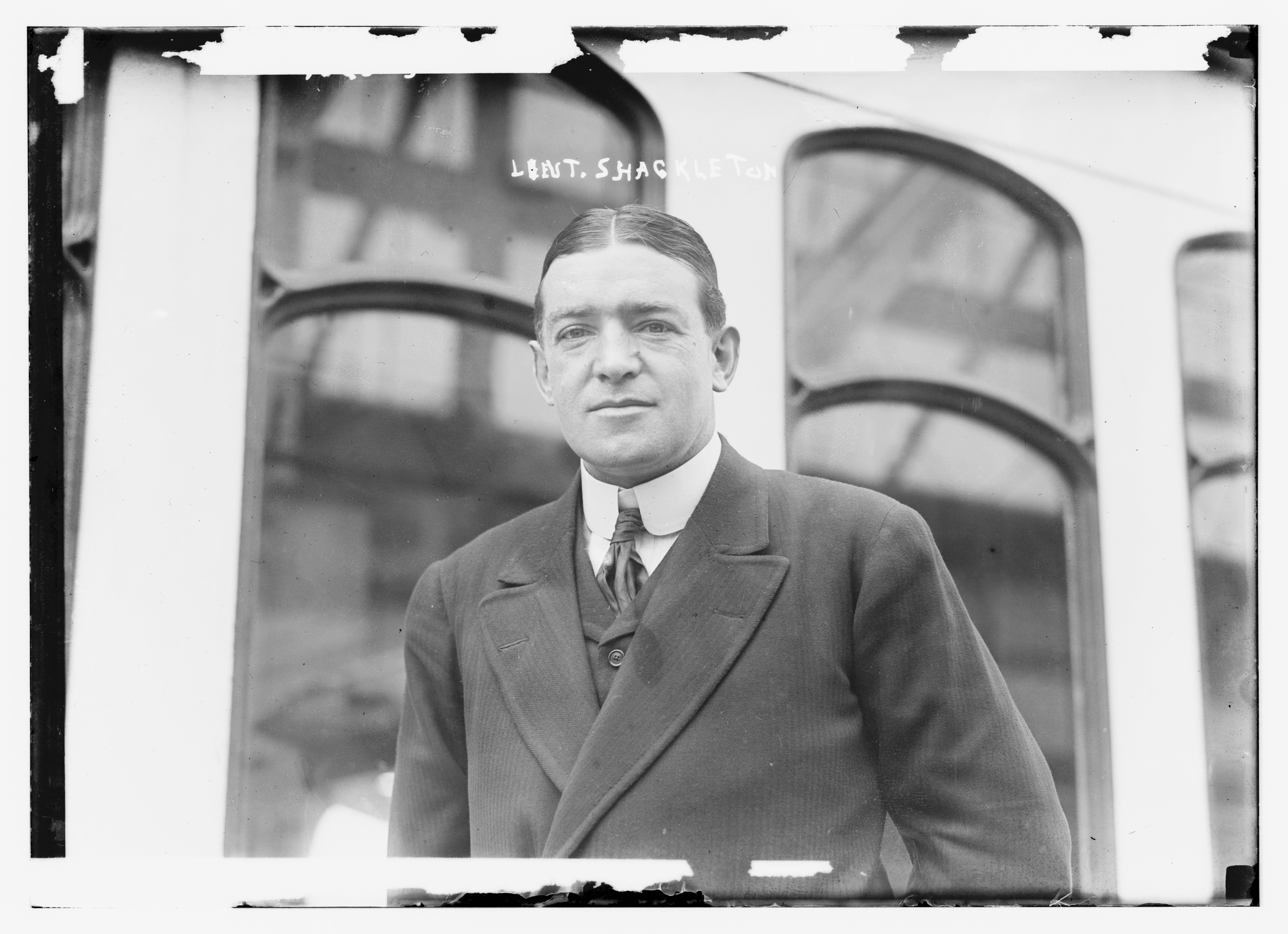
Photo: Sir Ernest Henry Shackleton
It could be said that men like Scott and Shackleton laid the foundations of modern celebrity culture. After the polar hero came the mountaineer, the aviator and the ubiquitous film star.
"There is a remarkable photo of Shackleton in London after his return from the Endurance expedition, and the rescue of his men", Stephen says. "It perfectly encapsulates both the social focus of the time and Shackleton's place within it. He is alone, unrecognized, and unlauded. When the war came, people lost interest in polar expeditions. Shackleton returned in 1917, having achieved the remarkable, and yet no one paid him much notice. You look at photos of him in London - he's just another face in the crowd."
Today the saga of the Endurance - particularly the survival of every man, the extraordinary exploits of the Ross Sea Party (which was an integral part of ITAE), the almost unimaginable conditions they faced, and Shackleton's staunch leadership throughout, has outlived most of his polar contemporaries.
Book Your Place on a Remarkable Journey into Polar History
You can join Stephen in the Weddell Sea in pursuit of Shackleton on our Remote Weddell Sea Explorer itinerary, departing 22 January 2026. This 27-night epic takes you from the shores of South Georgia, where the closing stages of the tale of the Endurance played out and where Shackleton was buried following his death there in 1922, and into the mighty Weddell Sea, pushing as far south as possible and retracing much of the route of the Endurance.
The drift of Shackleton and his men leads our expedition towards the Antarctic Peninsula, to remote islands inhabited by emperor penguins and seas patrolled by leopard seals. At Elephant Island, if conditions permit, you may be able to visit Point Wild, where the men of the Endurance survived against the odds and were ultimately rescued by their dauntless leader, one Sir Ernest Shackleton.
